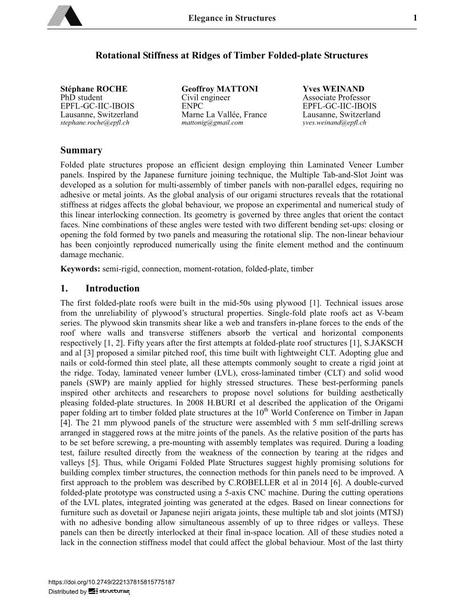Rotational Stiffness at Ridges of Timber Folded-plate Structures

|
|
|||||||||||
Détails bibliographiques
| Auteur(s): |
Stéphane Roche
Geoffroy Mattoni Yves Weinand |
||||
|---|---|---|---|---|---|
| Médium: | papier de conférence | ||||
| Langue(s): | anglais | ||||
| Conférence: | IABSE Conference: Elegance in structures, Nara, Japan, 13-15 May 2015 | ||||
| Publié dans: | IABSE Conference Nara 2015 | ||||
|
|||||
| Page(s): | 314-315 | ||||
| Nombre total de pages (du PDF): | 8 | ||||
| Année: | 2015 | ||||
| DOI: | 10.2749/222137815815775187 | ||||
| Abstrait: |
Folded plate structures propose an efficient design employing thin Laminated Veneer Lumber panels. Inspired by the Japanese furniture joining technique, the Multiple Tab-and-Slot Joint was developed as a solution for multi-assembly of timber panels with non-parallel edges, requiring no adhesive or metal joints. As the global analysis of our origami structures reveals that the rotational stiffness at ridges affects the global behaviour, we propose an experimental and numerical study of this linear interlocking connection. Its geometry is governed by three angles that orient the contact faces. Nine combinations of these angles were tested with two different bending set-ups: closing or opening the fold formed by two panels and measuring the rotational slip. The non-linear behaviour has been conjointly reproduced numerically using the finite element method and the continuum damage mechanic. |
||||

